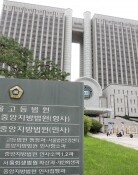Panel: U.S. Cant Stabilize Iraq Alone
Panel: U.S. Cant Stabilize Iraq Alone
Posted December. 08, 2006 08:36,
The panel report of the Iraq Study Group (ISG) described the current Sunni and Shiite conflicts in Iraq as grave and dangerous. This is almost a direct criticism of President Bush, who recently said, absolutely, were winning in Iraq.
Robert Gates, who forthrightly admitted the dire situation in Iraq, was confirmed by the Senate as Secretary of Defense by a vote of 95 to 2.
The ISGs report also said that even the superpower United States cant normalize Iraq by itself. This conclusion defied the diplomatic philosophy of neo-conservatives that the world moral virtue should be realized by American power.
The panel findings included the suggestion to make Iraq self-reliant through active intervention of Iraqi politicians. The report also called for stepped-up diplomatic efforts including talks with Iran and Syria, with which President Bush is reluctant to have dialogue. ISGs conclusions are recommendations that are not legally binding, but should be respected as policy suggestions.
Ten political experts from the Republican and the Democratic parties participated in the Iraq Study Group, preparing the report for 9 months. James Baker, former Secretary of State, was the leader of the independent, bipartisan panel.
Now attention is focused on how far President Bush will adopt the panels findings and how his administrations policy for Iraq will change.
President Bush thanked ISG members when they visited the White House to present the conclusions and said he would take their ideas very seriously. The U.S. media, however, is hesitant to describe his words as more than simple gratitude.
The Washington Post reported that the administration would take the panels report as a reference but draw its own decisions. White House spokesman Tony Snow said, The recommendations are not a magic wand (that makes something right away).
One of the most controversial issues in the report is the withdrawal timeline from Iraq at the end of March 2008. It is reported that William Perry, former Secretary of Defense under President Clinton, put this timeline in the report.
The timeline is to skirt Washingtons responsibility without fully understanding the reality in the war zone, said Jack Kin, former chairman of Joint Chiefs of Staff in an interview with New York Times.
Some pointed the governments failure to maintain Iraqi security for the past three and a half years and claimed that Iraq cannot build their own security capability in one year and three months.
But many say that President Bush will soon make a decisive decision.
Over the past month, the administration went through difficulties such as the sweeping Democratic victory in the midterm elections, step-down of Defense Secretary Donald Rumsfeld, confirmation hearing for the next Defense Secretary nominee Robert Gates, and the release of ISG report. These events are now putting pressure on the President to change his policy.
Analysts of the Democratic Party expect that the President cannot ignore panels recommendations which even Democrats are not satisfied with because he desperately needs the help from the opposition party.
The result of U.S.-U.K. Summit, which will be held on December 7, would be the important milestone to predict the future direction of Bushs policy. The two war planners are expected to have a deep discussion on setting their policy direction. Some say that we should wait and see for several months to know the result.
However, an additional $1 trillion in war chest may lead the President to spend his remaining years as a lame duck leader. As the ISG findings undermine both the cause and realism of Iraq war, which is represented by President Bush, it is not difficult to expect a President with weak power.
srkim@donga.com







